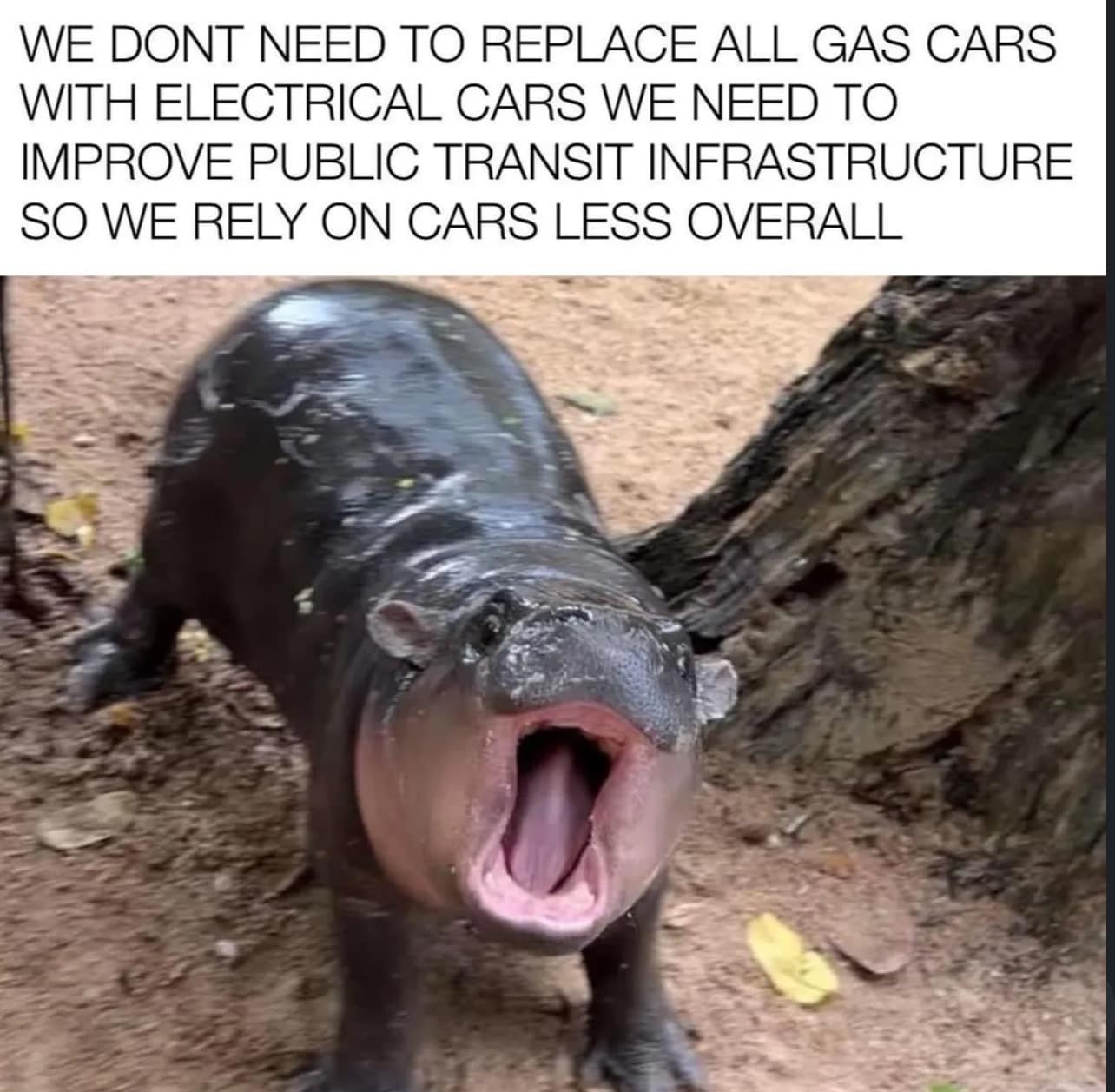Fuck Cars
A place to discuss problems of car centric infrastructure or how it hurts us all. Let's explore the bad world of Cars!
Rules
1. Be Civil
You may not agree on ideas, but please do not be needlessly rude or insulting to other people in this community.
2. No hate speech
Don't discriminate or disparage people on the basis of sex, gender, race, ethnicity, nationality, religion, or sexuality.
3. Don't harass people
Don't follow people you disagree with into multiple threads or into PMs to insult, disparage, or otherwise attack them. And certainly don't doxx any non-public figures.
4. Stay on topic
This community is about cars, their externalities in society, car-dependency, and solutions to these.
5. No reposts
Do not repost content that has already been posted in this community.
Moderator discretion will be used to judge reports with regard to the above rules.
Posting Guidelines
In the absence of a flair system on lemmy yet, let’s try to make it easier to scan through posts by type in here by using tags:
- [meta] for discussions/suggestions about this community itself
- [article] for news articles
- [blog] for any blog-style content
- [video] for video resources
- [academic] for academic studies and sources
- [discussion] for text post questions, rants, and/or discussions
- [meme] for memes
- [image] for any non-meme images
- [misc] for anything that doesn’t fall cleanly into any of the other categories
Recommended communities:
view the rest of the comments

Very few people ought to be living that way. I think it's fine for those people to use ICE cars. I also don't care very much if the tractors use fossil fuels.
To each their own. I don't live in the boonies but I'd like to retire there with some nice land to work on etc.
You can have nice land to work on in rural village. Being miles from your neighbor is not a sustainable way to live. And probably not healthy for a social animal like humans.
Transit between rural villages and the nearest city is possible and has been implemented in other countries
I was at my healthiest mentally and physically when I lived that far from people and went weeks without seeing another person, so every time I see people say this I wonder if I'm actually human.
Hmm. Healthy for who?
I have no close friends and I couldn’t be happier. As a matter of fact, give me a cave, a phone, a single outlet and BAM. I’m good to go. I don’t want friends, I want to laugh at a stranger’s joke on the internet and I’m good.
That puts you at an extreme, where there are not many like you. So I don't care if you have a gas car. But you should not stand in the way for most people to live more ethicaly, without a car. Support dense cities so there are plenty of pristine caves for hermits to live in.
I mean, yeah. Why not? I don’t want to live in a city, but if you give me a cave, I’m in.
I wish I wasn’t me. I really do.
But also
hrmmmm
I say that with the biggest goddamn smile you’ve ever seen.
It's about five to one rural to urban now.
In America, it's 5:1 urban to rural. https://www.census.gov/library/stories/2017/08/rural-america.html
And the threshold for rural is 500 people per square mile. So the 5 minutes to neighbor is at a rare extreme. https://www.census.gov/content/dam/Census/library/publications/2016/acs/acsgeo-1.pdf
You should know that the 2020 census redefines "urban" to increase the number of people/houses required (your article is from 2017). However, the US has urbanized more since 2010, so it's still 80.0% who live in urban areas compared to 80.7% in 2010. To clarify, the population requirement for what constitutes an urban area doubled from 2500 to 5000 people, and that figure only dropped 0.7%.